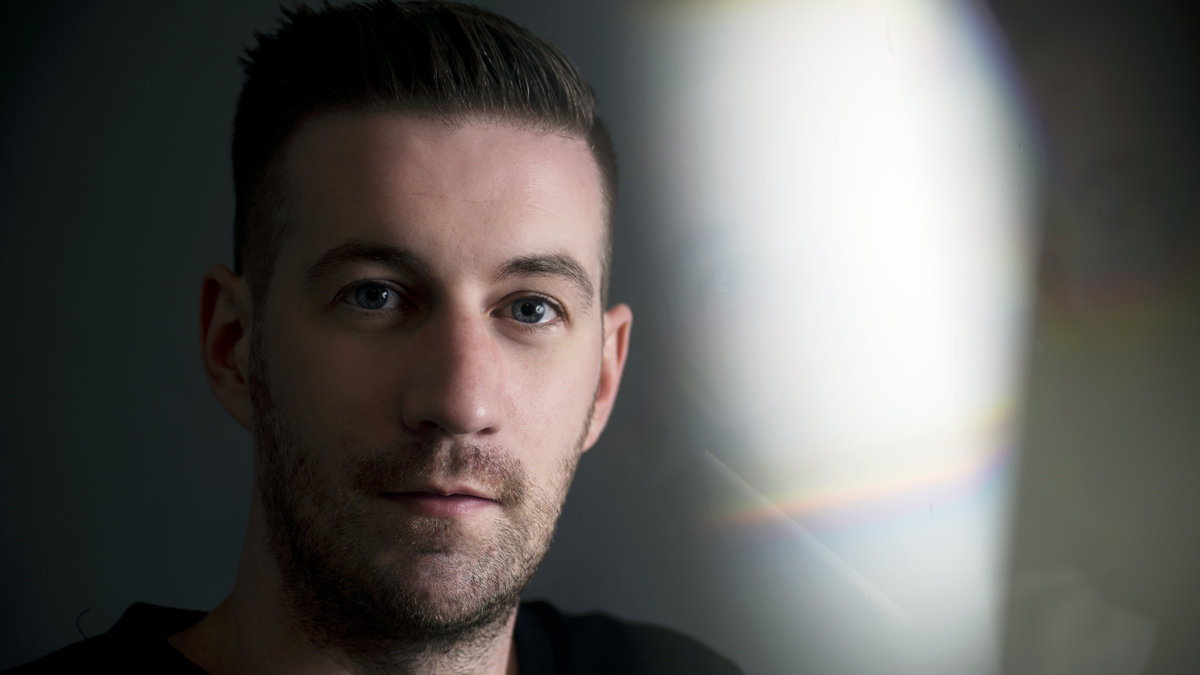Kastle: 5 things I've learned about music production
As he releases new album Reflections, the producer ruminates on the creative process

Want all the hottest music and gear news, reviews, deals, features and more, direct to your inbox? Sign up here.
You are now subscribed
Your newsletter sign-up was successful
As befits an album called Reflections, Barrett Richards' second LP sees him stepping back and re-evaluating. After relocating to the suburbs from Downtown LA, the producer and Symbols label owner - known in musical circles as Kastle - stopped searching for the next hot new sound and found his own voice.
The result is a record that takes in everything from hip-hop and R&B to two-step and UK garage, with nods to drum 'n' bass along the way.
With seven years' worth of releases behind him, we asked Kastle to distill his knowledge and tell us the five things he's learned about music production.
1. You need to get in the zone
"Everybody will have a different process when going into the studio, but I think it's important that you are comfortable.
"For me, the studio needs to be pretty spotless. For my new album I went a step further and kind of ritualised the studio session process by meditating beforehand to clear my head. Meditation can open the door of your intuition, which will be helpful to creating something unique in the studio.
"Find a process that works for you and stay consistent with it. It will help you get in the zone."
2. It helps to throw ideas at the wall
"I love to just throw tons of ideas at a project. I'll record lots of different melodies, create many different layers and percussion rhythms. All that excess I'll usually just drag far over in the timeline.
Want all the hottest music and gear news, reviews, deals, features and more, direct to your inbox? Sign up here.
"As I continue to write, something that I did earlier could be worked in somewhere and often in a creative way. For example, you could take just a snippet of a melody and reverse it. Or use a different percussion pattern as a fill. You never know what will work but, once again, this is your intuition at work."
Meditation can open the door of your intuition, which will be helpful to creating something unique in the studio.
3. You need to know your frequencies
"Life is made of energy and everything vibrates at different frequencies. So, you could say that frequencies are pretty important.
"Make sure you get to know your track elements and get to know what frequencies all of your layers are playing at. Use spectrum analysers to monitor your tracks; these can help you keep a good balance. If you overload a certain frequency range, it can really make your mixdown sound muddled."
4. Keep things tidy and make the most out of what you're left with
"Remember when you were throwing everything at the wall? There's also a time to clean up all the excess and superfluous sounds and make the track as simple as possible.
"Solo every track and really listen to it. Do you absolutely need it? If so, pay attention to each sound and give it as much love as possible. Experiment with some creative effect chains. Time to really make that kick punch with compression. Tend to your reverb; perhaps a little saturation and sidechain compression to really make the sound stand out. Experiment with stereo imaging and panning effects. Once you strengthen your key layers, it will be a lot easier."
5. Leave some headroom and monitor on multiple systems
"If you paid attention to your frequencies and cleaned up the excess, the mixdown should be a breeze. Make sure none of your tracks are in the red and that you have at least -3dB headroom on the master fader. This will give the mastering engineer the headroom needed to do the master and keep the dynamics intact.
"Listen to your mixdown on as many different setups as possible outside of your studio. In your car, through your earbuds, on that crappy bluetooth speaker, out of your laptop speakers. As a general rule of thumb, you want your track to sound good on all systems."

I’m the Deputy Editor of MusicRadar, having worked on the site since its launch in 2007. I previously spent eight years working on our sister magazine, Computer Music. I’ve been playing the piano, gigging in bands and failing to finish tracks at home for more than 30 years, 24 of which I’ve also spent writing about music and the ever-changing technology used to make it.